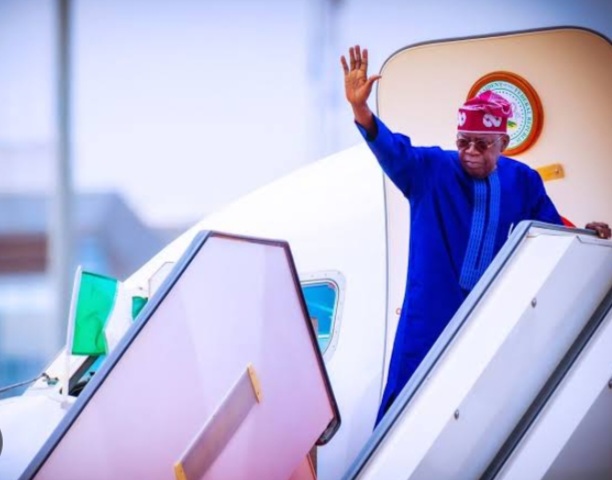President Bola Tinubu’s plans for the World Economic Forum took an unexpected turn as the Nigerian Air Force 001, the presidential jet, encountered technical issues, leaving Tinubu and his delegation no choice but to opt for alternative travel arrangements.
The luxurious Boeing 737 business jet, a cornerstone of presidential travel since its acquisition in 2005, has been undergoing maintenance for weeks.
A backup aircraft faced its own challenges, including an oxygen leak while in the Netherlands, further complicating the situation.Faced with these setbacks, Tinubu and his team resorted to chartering private jets for their journey to Riyadh, Saudi Arabia, where the World Economic Forum awaited their participation.
The Falcon 8X 9H-GRC private jet became their airborne refuge, accommodating the president, key aides, and select officials.This incident sheds light on ongoing concerns about the age and reliability of Nigeria’s presidential air fleet.
With the Boeing 737 requiring frequent repairs, totalling over $8 million since December 2022, questions arise about the prudence of such expenses in a country grappling with economic challenges.
Aviation experts and officials alike emphasize the need for a reassessment of the presidential fleet, citing safety risks and the substantial financial burden of maintenance.
As discussions on replacements gain momentum, the focus shifts to allocating resources judiciously, especially given Nigeria’s pressing developmental needs.
Amidst these challenges, Tinubu and his delegation have landed in Saudi Arabia, ready to engage in crucial economic and diplomatic dialogues at the World Economic Forum, highlighting resilience in the face of aviation setbacks. Peoples Gazette




